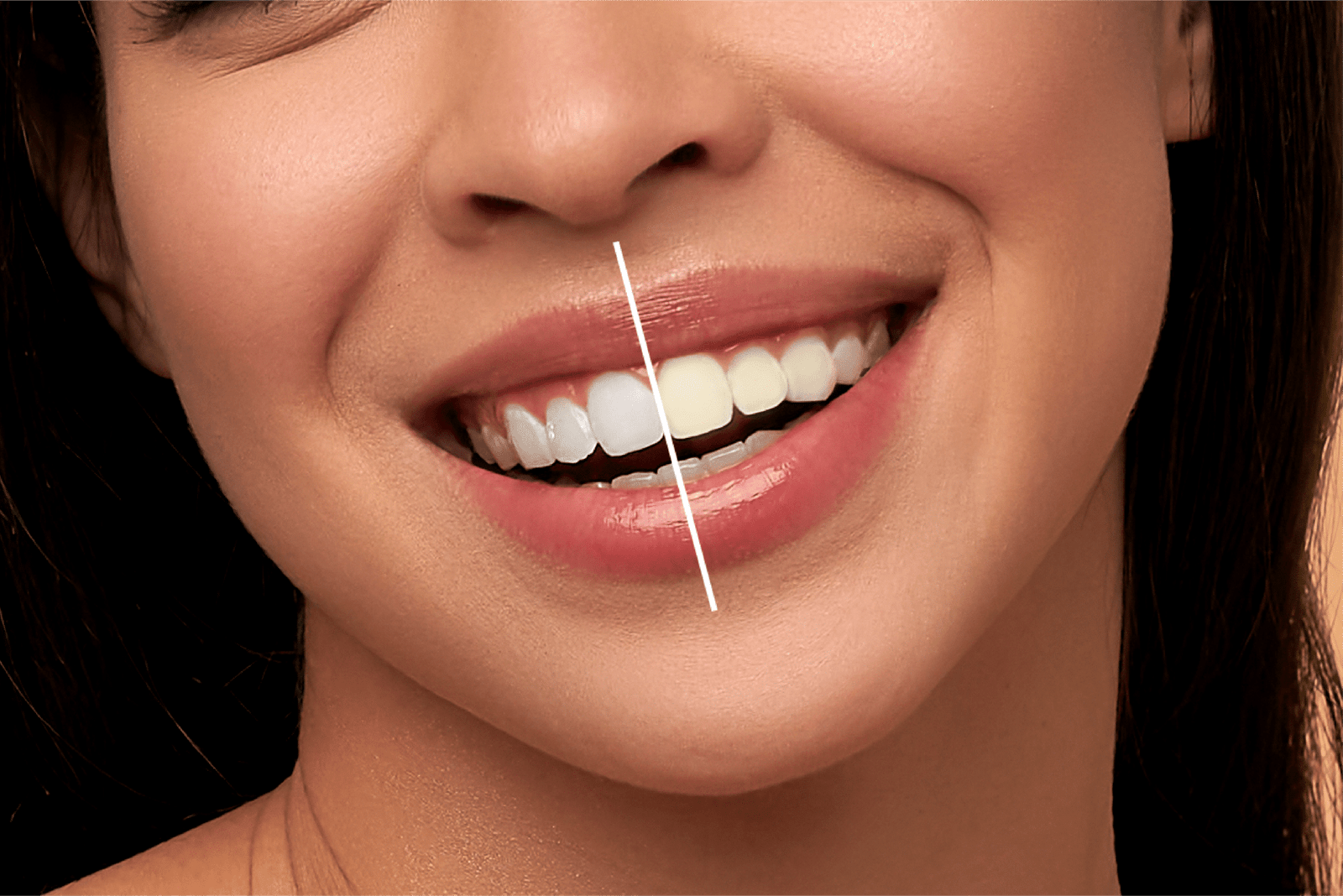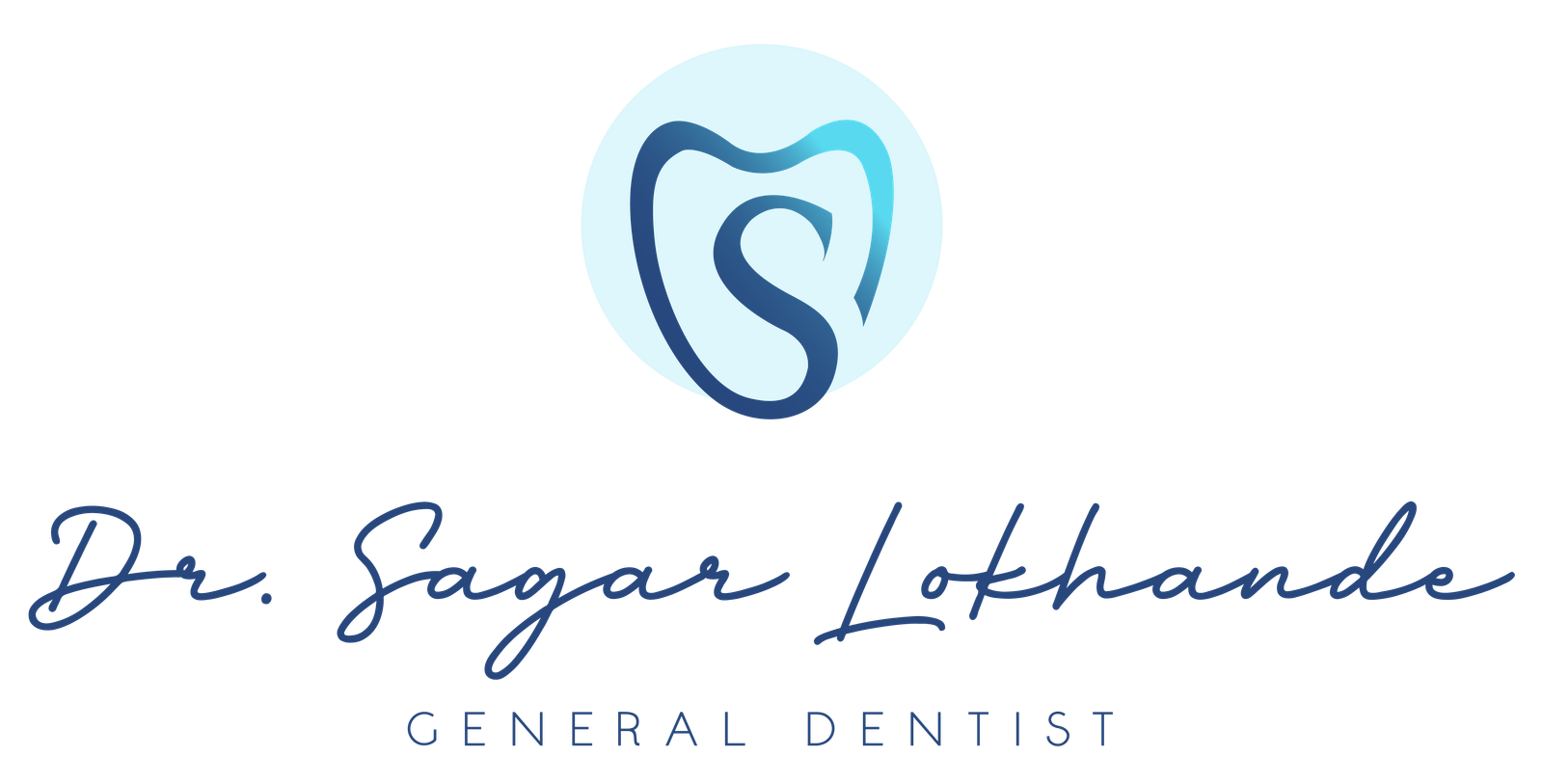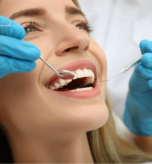Why Regular Dental Check-Ups Are Key to a Healthy Smile
When was the last time you visited the dentist? If you’re scrambling to remember, you’re not alone. Many people put off dental check-ups, often waiting until there’s a problem like a toothache or sensitivity. But here’s the thing—your smile is like a car engine. It works quietly and efficiently, but it still needs routine maintenance to stay in top shape. Regular dental check-ups aren’t just about keeping your teeth white; they’re about ensuring your entire oral health stays in check.
We get it—life gets busy, and a dental appointment isn’t exactly the most exciting thing on your to-do list. However, skipping check-ups can lead to a host of issues, some of which might take you by surprise. In this blog, we’ll explore why regular dental check-ups are essential and how they contribute to a healthy smile that lasts a lifetime.
What Happens During a Dental Check-Up?
Before diving into why these visits are important, let’s break down what actually happens during a dental check-up. Many people avoid the dentist because they don’t know what to expect, but it’s not as intimidating as you might think.
A typical dental check-up includes:
- Examination: Your dentist will examine your teeth, gums, and mouth for signs of decay, gum disease, or other potential issues. They may also check your bite and jaw alignment.
- Professional Cleaning: A hygienist will remove plaque and tartar buildup that you can’t get rid of with regular brushing and flossing.
- X-rays (if needed): These help detect hidden issues like cavities between teeth, bone loss, or impacted teeth.
- Discussion: Your dentist will talk to you about your oral health and provide tips or recommendations tailored to your needs.
This quick overview shows that dental check-ups are more about prevention than treatment.
The Benefits of Regular Dental Check-Ups
- Early Detection of Problems
One of the biggest advantages of regular dental visits is catching problems early. Cavities, gum disease, or even oral cancer often don’t show obvious symptoms in the beginning stages. By the time you feel pain or discomfort, the issue might already be advanced and harder (and more expensive) to treat. A routine check-up ensures these problems are identified and managed early.
- Prevent Gum Disease
Your gums are just as important as your teeth when it comes to oral health. Gum disease can start off as mild gingivitis, but if left untreated, it can progress to periodontitis, which can lead to tooth loss. Regular cleanings and check-ups help remove the plaque and bacteria that cause gum disease, keeping your gums healthy and pink.
- Save Money in the Long Run
Prevention is always cheaper than treatment. Routine dental check-ups might cost a small amount, but they can save you from costly procedures like root canals, crowns, or tooth extractions in the future. Think of it as an investment in your long-term oral health.
- A Brighter, Cleaner Smile
Who doesn’t want a sparkling smile? Professional cleanings during your check-up can remove stains and tartar that brushing at home can’t tackle. This keeps your teeth looking bright and smooth, giving you that extra boost of confidence.
- Overall Health Connection
Did you know that your oral health is closely linked to your overall health? Issues like gum disease have been connected to conditions such as diabetes, heart disease, and even Alzheimer’s. Regular dental check-ups not only keep your mouth healthy but also act as a preventative step for your general wellbeing.

Common Excuses and Why They Don’t Hold Up
Let’s face it—most people skip dental visits for a variety of reasons. Here are some common excuses and why they don’t hold up:
- “I don’t have time.”
Dental check-ups typically only take an hour or so every six months. It’s a small time commitment for a major health benefit. - “I’m not in pain, so I don’t need to go.”
Waiting for pain is a mistake. Many oral health issues don’t cause discomfort until they’ve progressed to a serious stage. - “It’s too expensive.”
Preventive care is much cheaper than restorative procedures like fillings or implants. Many dental clinics also offer payment plans or packages to make it affordable. - “I’m scared of the dentist.”
Modern dentistry is much more comfortable than it used to be. Dentists now focus on making the experience as stress-free as possible. Don’t hesitate to communicate your fears with your dentist—they’ll work with you to ensure you feel at ease.
How Often Should You Visit the Dentist?
The general rule is to visit your dentist every six months. However, this can vary depending on your oral health. For instance, if you’re prone to gum disease or have a history of cavities, your dentist may recommend more frequent visits. On the other hand, if your teeth and gums are in great shape, you might only need a yearly check-up.
The key is to follow your dentist’s advice and maintain a consistent schedule.
Tips for Maintaining Oral Health Between Visits
While regular dental check-ups are essential, daily care is equally important. Here are some quick tips to keep your teeth and gums in tip-top condition between visits:
- Brush Twice a Day: Use a fluoride toothpaste and brush for at least two minutes.
- Floss Daily: Don’t skip this step—it helps remove food particles and plaque from areas your toothbrush can’t reach.
- Eat a Balanced Diet: Minimise sugary snacks and drinks, and include plenty of calcium-rich foods for strong teeth.
- Stay Hydrated: Drinking water helps rinse away food particles and keeps your mouth moist, reducing the risk of cavities.
- Use Mouthwash: An antibacterial mouthwash can help reduce plaque and freshen your breath.
Consistency is the secret to a healthy smile.
The Bottom Line
A healthy smile isn’t just about aesthetics—it’s about maintaining your overall health and wellbeing. Regular dental check-ups might not seem urgent, but they’re a crucial part of preventive healthcare. By catching potential issues early, keeping your teeth and gums clean, and protecting your overall health, these routine visits do more than you might realise.
If it’s been a while since your last dental check-up, now’s the time to schedule one. Don’t wait for a problem to arise. Book an appointment with your dentist today and take the first step towards a lifetime of healthy, confident smiles.
Your smile deserves it!
Understanding Gum Disease: Signs, Prevention, and Treatment
When was the last time you thought about your gums? We often focus on keeping our teeth white and cavity-free, but your gums play an equally important role in maintaining a healthy mouth. Gum disease, also known as periodontal disease, is one of the most common oral health issues worldwide. Yet, it often goes unnoticed until it becomes a serious problem.
Ignoring your gums can have far-reaching consequences—not just for your smile but for your overall health. The good news? Gum disease is preventable and treatable if caught early. In this blog, we’ll explore the signs of gum disease, ways to prevent it, and how it can be treated effectively. By the end, you’ll know exactly how to keep your gums healthy and strong.
What is Gum Disease?
Gum disease is an infection of the tissues that support your teeth. It starts with a build-up of plaque—a sticky film of bacteria—on your teeth and gums. If not removed through brushing and flossing, this plaque hardens into tartar, irritating your gums and leading to inflammation.
There are two main stages of gum disease:
- Gingivitis: This is the early stage and is reversible with proper care. Gingivitis causes redness, swelling, and bleeding gums, but it doesn’t damage the underlying bone or tissues.
- Periodontitis: If gingivitis is left untreated, it progresses to periodontitis. At this stage, the infection affects the bone and tissues supporting your teeth, leading to gum recession, tooth loosening, and even tooth loss.
Signs of Gum Disease
Gum disease often creeps in silently, with symptoms so mild that you might not notice them. However, early detection is key to preventing it from worsening. Here are the most common signs to watch out for:
- Red or swollen gums: Healthy gums should be pink and firm. Inflammation is one of the earliest signs of trouble.
- Bleeding gums: Bleeding when brushing or flossing is not normal and often signals the presence of gum disease.
- Persistent bad breath: Bacteria in plaque can produce odours that don’t go away even after brushing.
- Receding gums: If your teeth look longer than usual, it could mean your gums are pulling back, exposing the roots of your teeth.
- Loose teeth: Advanced gum disease can weaken the structures holding your teeth in place.
- Pain or discomfort: Tender gums or pain when chewing could also indicate an issue.
If you notice any of these symptoms, it’s important to see your dentist or hygienist as soon as possible.
Why Gum Disease Shouldn’t Be Ignored
You might wonder—what’s the big deal about gum disease? It’s just a bit of bleeding, right? Wrong. Gum disease doesn’t just affect your mouth; it can have serious implications for your overall health.
Research has shown that gum disease is linked to conditions like:
- Heart disease: The bacteria from infected gums can enter your bloodstream, contributing to inflammation in your arteries.
- Diabetes: Gum disease can make it harder to control blood sugar levels, creating a vicious cycle for diabetics.
- Respiratory infections: Inhaling bacteria from your mouth can lead to lung infections, especially in vulnerable individuals.
- Pregnancy complications: Pregnant women with gum disease are at higher risk of premature birth and low birth weight.
Taking care of your gums isn’t just about preserving your teeth—it’s about safeguarding your overall health.
How to Prevent Gum Disease
Preventing gum disease is easier than treating it. By adopting a consistent oral hygiene routine and making a few lifestyle changes, you can keep your gums healthy and happy. Here’s how:
- Brush Properly: Use a soft-bristled toothbrush and fluoride toothpaste to brush twice a day. Pay attention to the gumline, where plaque tends to accumulate.
- Floss Daily: Flossing removes food particles and plaque from between your teeth, where your toothbrush can’t reach.
- Use Mouthwash: An antibacterial mouthwash can help reduce bacteria in your mouth and keep your gums fresh.
- Eat a Balanced Diet: Limit sugary snacks and drinks, as they feed the bacteria that cause gum disease. Focus on a diet rich in fruits, vegetables, and whole grains.
- Stay Hydrated: Drinking water helps wash away food particles and keeps your mouth hydrated, reducing bacterial growth.
- Avoid Smoking: Smoking weakens your immune system and makes it harder for your gums to heal, increasing the risk of gum disease.
- Schedule Regular Check-Ups: Visit your dentist every six months for a professional cleaning and examination. They can spot early signs of gum disease and address them before they become serious.
Treatment Options for Gum Disease
If you’ve already developed gum disease, don’t worry—it’s not too late to take action. Treatment depends on the severity of the condition and may include the following:
1. Professional Cleaning
For mild gum disease (gingivitis), a professional cleaning can remove plaque and tartar, allowing your gums to heal. Your dentist or hygienist may also offer tips to improve your home care routine.
2. Scaling and Root Planing
If the disease has progressed to periodontitis, you may need a deep cleaning procedure called scaling and root planing. This involves removing tartar from below the gumline and smoothing the root surfaces to help your gums reattach to your teeth.
3. Medications
Your dentist may prescribe antibiotics or antimicrobial mouthwashes to control infection and reduce bacteria in your mouth.
4. Surgical Treatment
In severe cases, surgical procedures like flap surgery or bone grafts may be necessary to restore gum health and prevent tooth loss.
The Bottom Line
Gum disease is more than just a dental problem—it’s a health concern that requires attention and care. By recognising the early signs, practising good oral hygiene, and visiting your dentist regularly, you can prevent gum disease from taking hold. If you’re already experiencing symptoms, don’t delay seeking treatment. The sooner you act, the easier it will be to restore your gum health.
Healthy gums are the foundation of a healthy smile. So, take that first step today. Book an appointment with your dentist, and give your gums the care they deserve. After all, a strong smile starts with strong gums!
The Do’s and Don’ts of Oral Hygiene
Oral hygiene is more than just brushing your teeth every morning—it’s about creating a daily routine that keeps your mouth healthy, your smile bright, and your overall health in check. The truth is, maintaining good oral hygiene doesn’t have to be complicated, but many of us unknowingly develop habits that can do more harm than good.
In this blog, we’ll break down the essential do’s and don’ts of oral hygiene, helping you protect your teeth and gums with confidence. Whether you’re looking to refine your routine or simply avoid common mistakes, these tips will set you on the right path.
The Do’s of Oral Hygiene
Here’s what you should be doing daily to keep your teeth and gums in tip-top shape:
1. Brush Twice a Day
This one might seem obvious, but it’s worth repeating: brushing twice a day—once in the morning and once before bed—is non-negotiable. Use a fluoride toothpaste to remove plaque, strengthen enamel, and protect against cavities. Spend at least two minutes brushing, paying attention to every surface of your teeth.
2. Floss Daily
Flossing isn’t just an extra step—it’s a crucial part of your routine. Floss removes food particles and plaque from between your teeth and below the gumline, areas that your toothbrush simply can’t reach. Make it a habit to floss at least once a day, ideally before bed.
3. Use Mouthwash
Rinsing with an antibacterial mouthwash helps reduce bacteria in your mouth and freshens your breath. While it’s not a substitute for brushing or flossing, it’s a great addition to your oral hygiene routine for extra protection.
4. Replace Your Toothbrush Regularly
Your toothbrush doesn’t last forever. Replace it every 3–4 months, or sooner if the bristles are frayed. A worn-out toothbrush won’t clean your teeth effectively and may irritate your gums.
5. Stay Hydrated
Drinking water throughout the day helps wash away food particles and bacteria, keeping your mouth clean between brushing. Water also prevents dry mouth, which can lead to bad breath and a higher risk of cavities.
6. Eat Tooth-Friendly Foods
Include foods rich in calcium, phosphorus, and vitamins that strengthen your teeth and gums. Dairy products, leafy greens, nuts, and crunchy fruits and vegetables like apples and carrots are great options.
7. Visit Your Dentist Regularly
No matter how diligent your at-home care is, professional cleanings and check-ups are essential. Dentists can spot issues early, give your teeth a deep clean, and offer personalised advice to improve your oral health. Aim to visit your dentist every six months.
The Don’ts of Oral Hygiene
Now that we’ve covered the essentials, let’s talk about habits you should avoid to protect your teeth and gums:
1. Don’t Brush Too Hard
Brushing with too much pressure might seem like it’ll give you a deeper clean, but it can actually harm your enamel and irritate your gums. Use gentle, circular motions and let the bristles do the work. If you’re unsure, a soft-bristled toothbrush is your safest option.
2. Don’t Skip Flossing
Skipping flossing even once in a while allows plaque to build up in hard-to-reach areas, increasing your risk of cavities and gum disease. Think of flossing as an essential part of your oral hygiene routine, not an optional step.
3. Don’t Overuse Whitening Products
Whitening toothpaste and at-home treatments are popular, but overusing them can lead to tooth sensitivity and enamel damage. Stick to products recommended by your dentist and use them sparingly.
4. Don’t Snack Constantly
Frequent snacking, especially on sugary or starchy foods, exposes your teeth to a constant supply of acid-producing bacteria. This can weaken your enamel over time. Try to limit snacking between meals and choose healthier options like nuts or cheese when you do snack.
5. Don’t Ignore Tooth Pain or Sensitivity
It’s tempting to brush off mild discomfort, but tooth pain or sensitivity can be a sign of a deeper issue, like a cavity or gum disease. If you notice anything unusual, don’t wait—schedule a dental appointment as soon as possible.
6. Don’t Use Your Teeth as Tools
Using your teeth to open packages, bite your nails, or chew on pens may seem harmless in the moment, but it can lead to chips, cracks, or other dental injuries. Your teeth are for chewing food—nothing else!
7. Don’t Skip Your Tongue
Neglecting your tongue allows bacteria to linger in your mouth, contributing to bad breath and potentially impacting your oral health. Gently brush your tongue or use a tongue scraper to keep it clean.
Tips for a Healthy Oral Hygiene Routine
To make the most of your efforts, consistency is key. Here are a few practical tips to help you stay on track:
- Set Reminders: If you often forget to floss, set a reminder on your phone until it becomes a habit.
- Invest in the Right Tools: Electric toothbrushes and water flossers can make brushing and flossing more effective and enjoyable.
- Chew Sugar-Free Gum: When you can’t brush, chewing sugar-free gum can help stimulate saliva production, which protects your teeth from decay.
- Teach Kids Early: Encourage good oral hygiene habits in children by making brushing fun and rewarding consistency.
The Bottom Line
Good oral hygiene is the foundation of a healthy smile and a healthy life. By sticking to the do’s—like brushing, flossing, and visiting your dentist regularly—and avoiding the don’ts—like brushing too hard or snacking excessively—you can maintain strong teeth and gums for years to come.
Remember, your oral health is in your hands, and small, consistent efforts can make a big difference. If you’re unsure about your routine or have specific concerns, don’t hesitate to reach out to your dentist for guidance. They’re there to help you achieve and maintain your best smile.
Ready to take your oral hygiene to the next level? Book a dental check-up today and give your smile the care it deserves!



